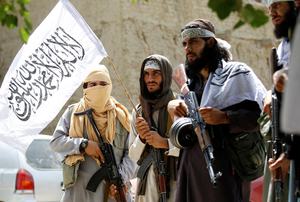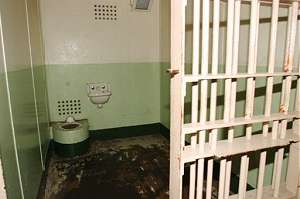#US-trained Afghan pilots and other personnel boarded a US-brokered flight out of Tajikistan, ending a nearly three-month detention ordeal that began when they escaped there in their aircraft during the #Taliban takeover, Afghan sources say.https://t.co/vPEYM5px8v
— Al Arabiya English (@AlArabiya_Eng) November 10, 2021
“It's a relief,” said David Hicks, a retired US brigadier general who is helping lead a charity called Operation Sacred Promise working to evacuate and resettle Afghan air force personnel.
The Afghan personnel in Tajikistan represented the last major group of US-trained pilots who fled abroad and were still known to be in limbo.
The group of evacuees included a US-trained Afghan pilot at an advanced stage of pregnancy, who had expressed fear for her unborn baby in an interview with.
The group flew to Tajikistan in military aircraft at the end of the war, was detained by Tajik authorities and had been awaiting a US relocation - hoping the transfer to the Middle East will lead to eventual US resettlement.
Rooters detailed accounts from the pregnant pilot and other members of the group about their frustrations with their detention, and was first to report US plans to relocate them.
The Pentagon estimated that the expected group of evacuees totaled about 191 - larger than the more than 150 Afghans previously known to be at two sites in Tajikistan. It did not explain the figures.
Afghan air force personnel flew dozens of military aircraft to Tajikistan and to Uzbekistan in August as the Taliban
 ...the Pashtun equivalent of men...
...the Pashtun equivalent of men...swept to power.
In September, a US-brokered deal allowed a larger group of Afghan pilots and other military personnel to be flown out of Uzbekistan to the United Arab Emirates.
Even before the Taliban's takeover, the US-trained, English-speaking pilots had become prime targets of the Taliban because of the damage they inflicted during the war. The Taliban tracked down the pilots and assassinated them off-base.
Afghanistan's new rulers have said they will invite former military personnel to join the revamped security forces and that they will come to no harm. But pilots who spoke with Rooters say they believe they will be killed if they return to Afghanistan.

 The widow of the Boston Marathon bombing suspect Tamerlan Tsarnaev has hired a lawyer with experience defending terrorism cases.
The widow of the Boston Marathon bombing suspect Tamerlan Tsarnaev has hired a lawyer with experience defending terrorism cases. The Pentagon announced Monday war crimes charges carrying the death penalty against a Tanzanian inmate held in Guantanamo Bay arising from Al-Qaeda attacks on US embassies in East Africa a decade ago.
The Pentagon announced Monday war crimes charges carrying the death penalty against a Tanzanian inmate held in Guantanamo Bay arising from Al-Qaeda attacks on US embassies in East Africa a decade ago.
